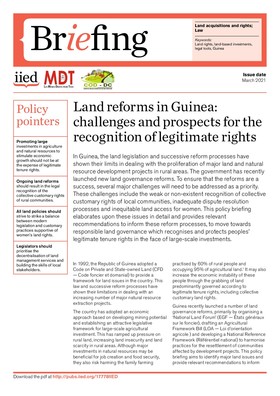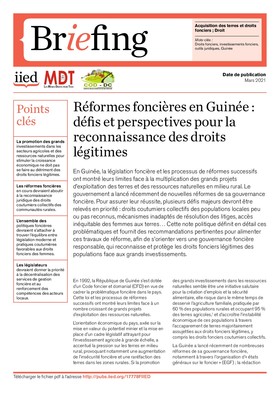Focal point
Location
Mission
Our mission is to build a fairer, more sustainable world, using evidence, action and influence in partnership with others.
Who we are
IIED is one of the world’s most influential international development and environment policy research organisations. Founded in 1971 by economist Barbara Ward, who forged the concept and cause of sustainable development, we work with partners on five continents. We build bridges between policy and practice, rich and poor communities, the government and private sector, and across diverse interest groups. We contribute to many international policy processes and frameworks, including the Intergovernmental Panel on Climate Change, the Millennium Ecosystem Assessment and the UN conventions on climate change and biological diversity.
What we do
IIED carries out research, advice and advocacy work. We carry out action research — generating robust evidence and know-how that is informed by a practical perspective acquired through hands-on research with grassroots partners — and we publish in journals and maintain high research standards. We advise government, business and development agencies, and we argue for changes in public policy. We focus on bottom-up solutions, stay open to flexible, adaptable solutions and are marked by a tradition of challenging conventional wisdom through original thinking.
Resources
Displaying 31 - 35 of 367Land reforms in Guinea
In Guinea, the land legislation and successive reform processes have shown their limits in dealing with the proliferation of major land and natural resource development projects in rural areas. The government has recently launched new land governance reforms. To ensure that the reforms are a success, several major challenges will need to be addressed as a priority. These challenges include the weak or non-existent recognition of collective customary rights of local communities, inadequate dispute resolution processes and inequitable land access for women.
Réformes foncières en Guinée
En Guinée, la législation foncière et les processus de réformes successifs ont montré leurs limites face à la multiplication des grands projets d’exploitation des terres et des ressources naturelles en milieu rural. Le gouvernement a lancé récemment de nouvelles réformes de sa gouvernance foncière.
Réformes foncières en Guinée : défis et perspectives pour la reconnaissance des droits légitimes
En Guinée, la législation foncière et les processus de réformes successifs ont montré leurs limites face à la multiplication des grands projets d’exploitation des terres et des ressources naturelles en milieu rural. Le gouvernement a lancé récemment de nouvelles réformes de sa gouvernance foncière.
Réformes foncières en Guinée : défis et perspectives pour la reconnaissance des droits légitimes
En Guinée, la législation foncière et les processus de réformes successifs ont montré leurs limites face à la multiplication des grands projets d’exploitation des terres et des ressources naturelles en milieu rural. Le gouvernement a lancé récemment de nouvelles réformes de sa gouvernance foncière.
Ensuring women’s participation in land governance: “bringing the law home” in Tanzania
A review of a book on land in Kenya published in 2020 by Boydell and Brewer Ltd. The reviewer offers a detailed analysis and discussion of the 8 chapters of this 224-page book. The chapters are entitled: introduction: what we talk about when we talk about land; land reform in Kenya: the history of an idea; making mischief: land in modern Kenya; land and constitutional change; the new institutional framework for land governance; land governance before the Supreme Court; rethinking historical land injustices; taking justice seriously.







